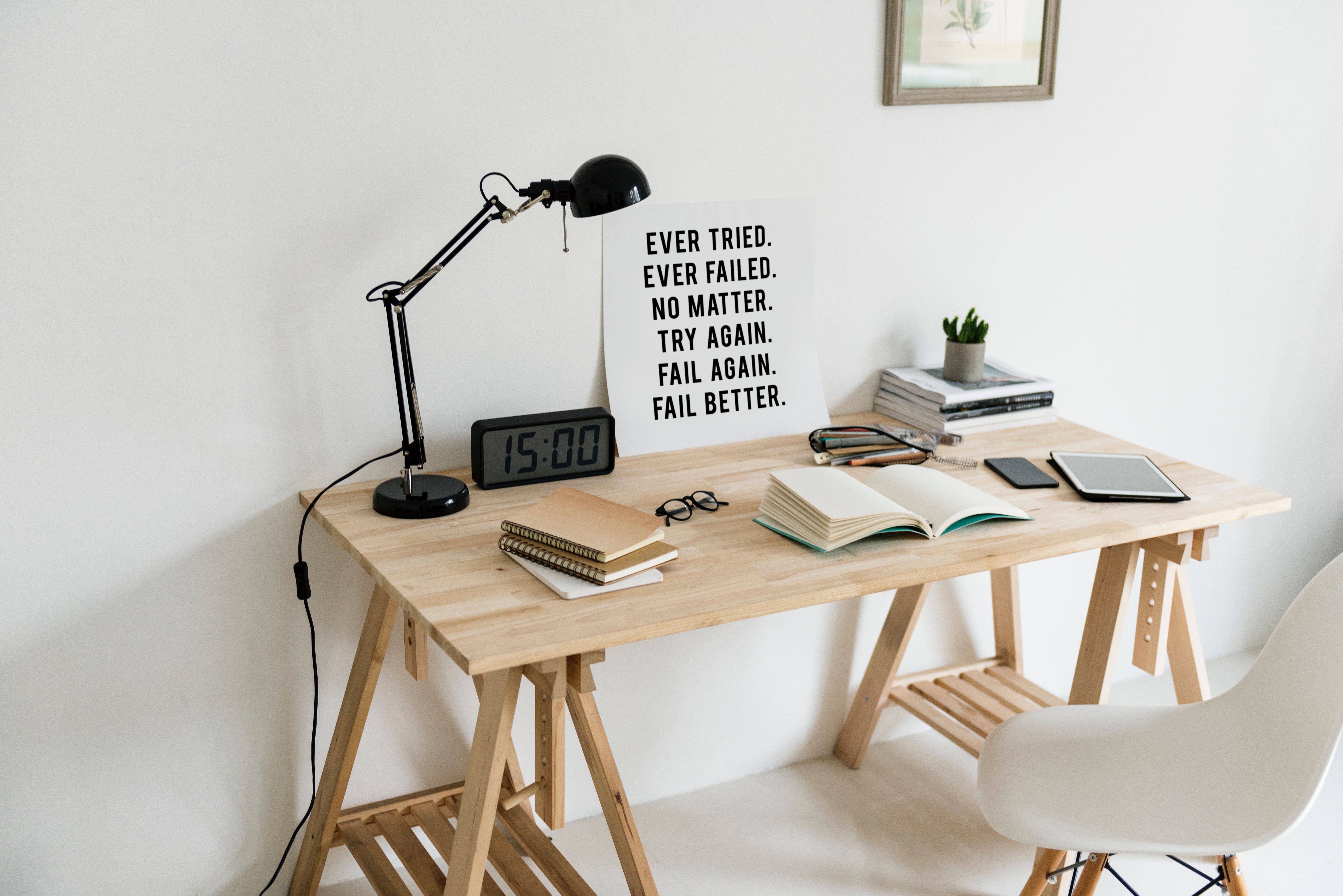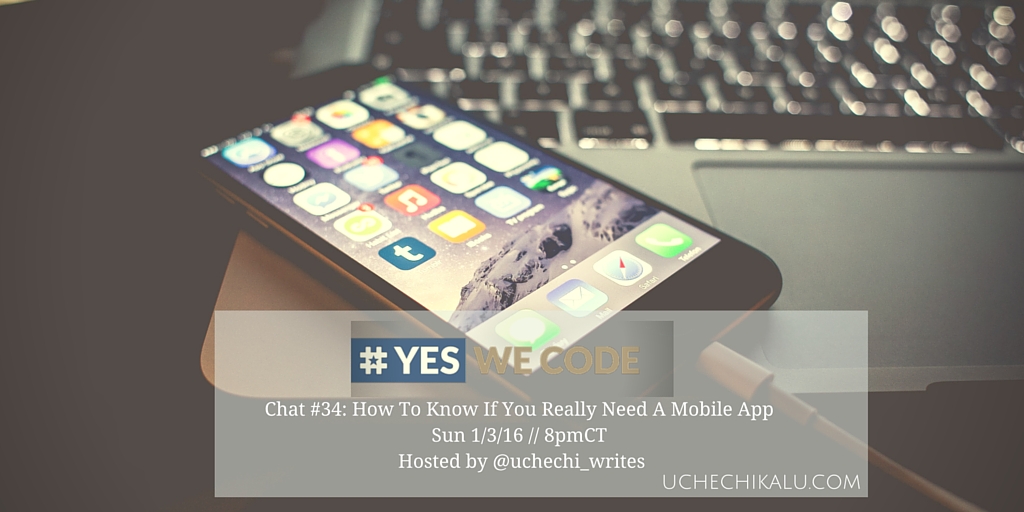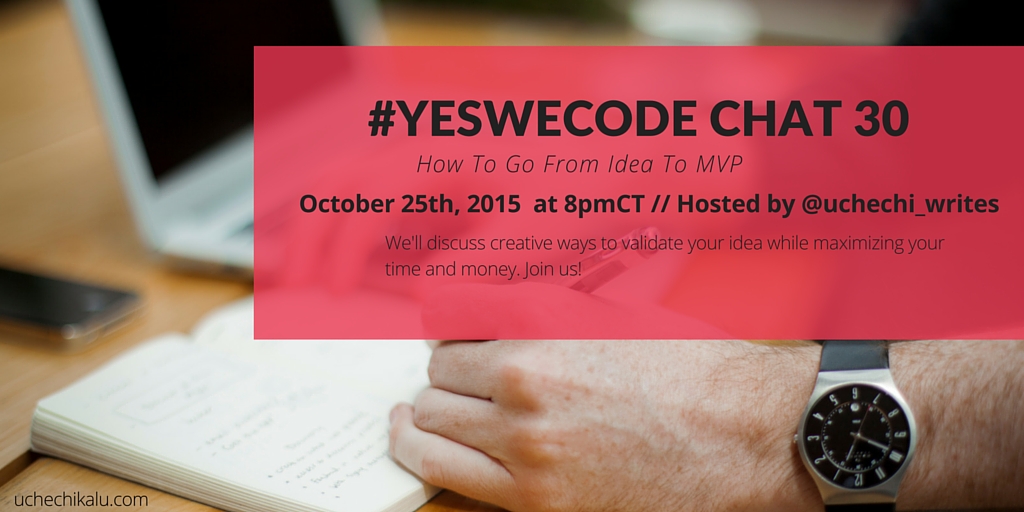
by Uchechi | Feb 7, 2019 | creative confidence, creative resilience, creativity

dear creative,
I want to talk to you about failure, and encourage you to reframe how you see your past. I’m going to say something that might not make any sense but bear with me.
Your failures can be part of your creative lineage.
Let me tell you a story.
3 years ago, I closed the doors and turned off the lights at wedOcracy. I walked away from the startup world.
I did this because it was clear that the growth we were hoping for was not arriving anytime soon. My co-founder and I had been invited to major tech events and even pitched at SXSW. We had raised an initial round of funding. We attended a well-known tech accelerator where mentors guided us.
I immersed myself in the world of weddings. I studied wedding statistics. I know things that I probably have no business knowing about weddings. A few years after we launched, we closed wedOcracy’s doors because we were not growing as fast as we needed to. We had worked so hard, and I felt like a failure.
Our goal was to make weddings more social, more engaged and more fun. We didn’t find the technology, so we built it. In many ways, we succeeded. We helped couples from several counties make their weddings more fun and social. But I also had to make the difficult choice of closing the doors when it was time to move on.
As the startup founder, I had to write a final blog post to send out to our subscribers.
It was a horrible feeling.
Fast forward to today, and I realized that the things I learned about weddings can now help my wedding photography client. This month, I’ve been blessed with the opportunity to use the things I learned in the wedding industry. While running this company, I researched weddings. I know more than I should know. I became a nerd in the wedding industry.
This month, I’ve been blessed with the opportunity to use the things I learned in the wedding industry. While running this company, I researched weddings. I know more than I should know.
I became a nerd in the wedding industry.
I’ve started working with wedding and event photographer Chris Wodjak. Supporting her web design and marketing needs allowed me to reframe how I think about failure.
Your Creative Failures Can Lead To Your Future Creative Success
- Your past creative mistakes can be the ancestors for your future success. It is an honor to work with this talented photographer and bring all the skills and research I gained from my wedding startup days to support her in growing her business.
- The knowledge never leads you. While I moved on from the startup world, I still learned how to design and develop applications for startups. I still learned how to create effective marketing strategies for millennial brides. The knowledge stays with you.
- Sometimes, your true purpose is different from what you can imagine. When I closed the doors, I felt like a failure. I could not see (or understand) how I could use all of my efforts towards anything else.
Questions To Ask Yourself When You Feel Like A Creative Failure
- What if your failures are part of your future success?
- What if you were not meant to succeed in one area, but instead learn something to take you to the next stage?
- Can you learn to see your failures as the legacy for your success? What if your past failure is a creative ancestor for your future success?
I hope you find that day when your past mistakes feel like ancestors in your creative lineage. They are teaching you things. They are supporting your journey in ways that might sometimes feel difficult.
Keep going dear creative. I want to see your brilliance.
Love,
Your Future Self

by Uchechi | May 25, 2017 | Blog
My mother is my role model, especially when it comes to hustling to make a dream into a reality. The fact that she left her Nigerian village to study abroad has always inspired me. She is a risk taker, a trailblazer and she embodies the qualities I strive for as I run my technology startup. When I was in high school, my mother, a full time teacher, also had a side gig to help her pay the bills.
Every day, despite her full time job, she ran her ice cream truck business she was all about the hustle: Going after what you need to do to get to where you want to go. She wanted to be able to go to Nigeria every summer to see her family.Oh, and to raise 5 kids!
These are the business lessons I learned from my mom. Even though I was embarrassed when she picked me up in the ice cream truck, and even more embarrassed when she asked me to stop hiding and get up to sell ice cream to my classmates before she’d leave the school parking lot, I still think back on those lessons as I get my own hustle on every day.

My mother (on the left with me in her arms) , aunt, twin sister and older brother in Nigeria, 1979.
Lesson #1: Respect your entrepreneur and know what goals you’re working towards
Being a hustler isn’t about always trying to make more money. It’s about understanding your goal and knowing what you need to get there. My mom’s goal was to have extra money so she could visit family in Nigeria. So after teaching all day, she drove around town playing that sometimes-annoying ice cream truck song, and sold ice cream.
Lesson #2: Shame has no place in your vocabulary
I admit I was embarrassed and ashamed in the ice cream truck, and I sometimes felt the same way when she showed up in her traditional Nigerian outfit at our all-white suburban school. This was before it was cool to be ethnic. My mother felt that shame has no place in your world (unless you’ve done something horrible), and you can and should get up in any room or any crowd and show who you are.
Lesson #3: Differentiate yourself
Tuesday was free bubble gum day. All the kids knew this, and they would show up because her sales pitch was: reliable product and they gave out something for free. Here in New Orleans they call that lagniappe.
Lesson #4: There’s nothing wrong with a freebie, as long as it’s not your core product
My mother sold ice cream and she gave out free bubble gum, but she didn’t give out her core product which was her ice cream. By giving a little something for free and letting her users have a taste, they always came back and actually wanted to buy more.
Lesson #5: Make your product accessible
Other than free gum Tuesday, she always had some ice cream that was a bit damaged. She reserved these and sold them for half to 75 percent off. She had kids who didn’t have a dollar, but they had some money. She always found something for them, and made them feel they could be part of her club.
Lesson #6: Make your uniqueness work for you
My mother allowed herself to be who she needed to be. She was the woman who gave out free bubble gum, sold not so perfect ice creams instead of throwing them away, and embraced her cultural differences. She had her Nigerian accent and her broad laugh and she didn’t try to change it.
Lesson #7: Jealousy is a waste of time, unless you can use it to your benefit
I remember one day when my sister and I were fighting over a yellow shirt, and we both wanted it. My mom said we couldn’t come out of our room until we worked it out. After that she said “Jealousy has no point unless you can use it.” There will always be somebody prettier, smarter, more accomplished. Ask yourself why you’re jealous. Instead of hating them, become a friend and ask them how they did it.
Lesson #8: Sometimes, you’ve got to champion yourself
Sometimes there won’t be anyone who understands what you’re doing or what it’s like to run a business, so you have to champion yourself. Go out and buy yourself flowers, chocolate and champagne to celebrate your successes and acknowledge how far you’ve come.
Lesson #9: Don’t sweat the small stuff
Some days, you’ve just got to laugh it off and keep going. Don’t get weighed down by every wrong move. Just keep going.
Lesson #10: Go for success, but don’t take yourself so seriously
I remember laughing with my mother. It was the serious knees collapse, tears-start-flowing and I-think-I-peed-my-pants kind of laughter. That taught me to take time and laugh, enjoy and let things go. Tomorrow brings another opportunity.
Lesson #11: Tomorrow brings another opportunity
When I failed at something, my mom always said: That’s alright honey, tomorrow is another opportunity.
Being an entrepreneur isn’t east, and being successful is even more difficult, but I’ve learned to keep my mother’s lessons in mind. While you can’t control the fact that most startups fail, you can focus on making your product accessible, knowing what your hustling for (what are you trying to acheive?) and differentiating yourself (and your product) by making your uniqueness work for you.
What business lessons did you learn from your mom? I’d love to know. Hit me up in the comments!

by Uchechi | Jan 2, 2016 | Blog
Sunday 1/3/16 at 8pmCT
Let’s connect on Twitter: @uchechi_writes
Happy New Year and welcome to 2016! The new year gets me thinking about how to take my tech startup to the next level, and for months we’ve been talking about creating a wedOcracy mobile app.
Since launching in 2013, we’ve relied on the web based application but we’re starting to ask ourselves some serious questions (again) about mobile now that we have some funds to start building.
I believe in mobile first, and it’s a great way to optimize the user experience on desktop or mobile devices. It’s easy to think a mobile app will solve all your startup setbacks and usability issues. But will it really?
As the owners of a web development company, we’ve consulted with startups who’ve come to us believing that their first and foremost need was a mobile app. As often as not we end up working with them to find solutions that bring in more customers, optimize their social media presence and help them grow their business without building the app just yet (and without spending that large amount of cash).
As a founder, you don’t often have the capital to build something only to realize it doesn’t serve your users down the line. Maximizing time and money are essential, and so is knowing when to build your mobile product and when to hold off until you’re ready.
Questions to think about:
- How do you know if your idea needs a mobile app?
- Have you built a startup mobile app before? What was the process like? Did you have the capital to do it?
- Did you wonder if building your startup mobile app was the best choice for your company and product?
- How did you know where to start?
- What lessons did you learn about mobile app development for your startup?

by Uchechi | Dec 17, 2015 | Blog
It’s almost the end of the year, which means that the New Year is around the corner. Over the past year, I’ve hosted the #yeswecode chat and enjoyed learning from so many techies, both experts and newbies.
For the next #yeswecode chat, we’re going to talk about what the last year has been like in your world. What have been your successes? Failures? What lessons have you learned? What progress have you made?
Some questions to think about:
- What’s one thing you’ve achieved that you thought impossible a year ago?
- Did you achieve your tech goals? What were they?
- How were you able to achieve them?
- what were your setbacks? how did you overcome them
- What’s one thing you learned about yourself and/or your work in tech this year?
- What’s on your list for next year? Where do you see yourself by this time next year? What accomplishments do you hope to share with us?
- What should we as a community be thinking about for 2016? What should we be doing as a group?

by Uchechi | Oct 22, 2015 | Blog
#YesWeCode Chat 30
Topic: How To Go From Startup Idea To MVP
Sunday October 25th at 8pm CT
Connect with me @uchechi_writes
Going from your startup idea to MVP can be challenging, especially if you’re not quite sure how to validate your idea.
Over the last year, I’ve spoken to several startup entrepreneurs who are bootstrapping their product development, and want to know how to do so in a way that maximizes the time and money they do have. How do you know if there’s a need for your product? What counts as market validation? What are some low cost ways to test the market? These are all important questions you should ask yourself to help you get to your MVP. Often times, entrepreneurs don’t always know how to go about doing this effectively, and end up wasting a lot of time and resources.
I think it’s time we used the #yeswecode chat as a platform to help you figure this out and to help you get there with as little stress as possible.
During the chat, here are some questions to think about:
1. What does it meant to validate your idea?
2. Do you think you have to have lots of startup capital to do this?
3. If you’re a founder, how did you go about getting to your MVP?
4. Are there ways to use social media to help us get to our MVP?
5. For non technical founders, what has been the biggest hurdle you’ve had to overcome?
6. With varying ideas of what it means to “validate” your idea, how do we find a plan of action that gets us there with very little waste of time and/or money?
Missed the last #yeswecode chat and want to catch up before the next one? We discussed how to create more opportunity for all in tech.
See it here: http://buff.ly/1LmapNU
New to the #yeswecode chat? Check out these guidelines to help you make the most of it!
See you Sunday!



